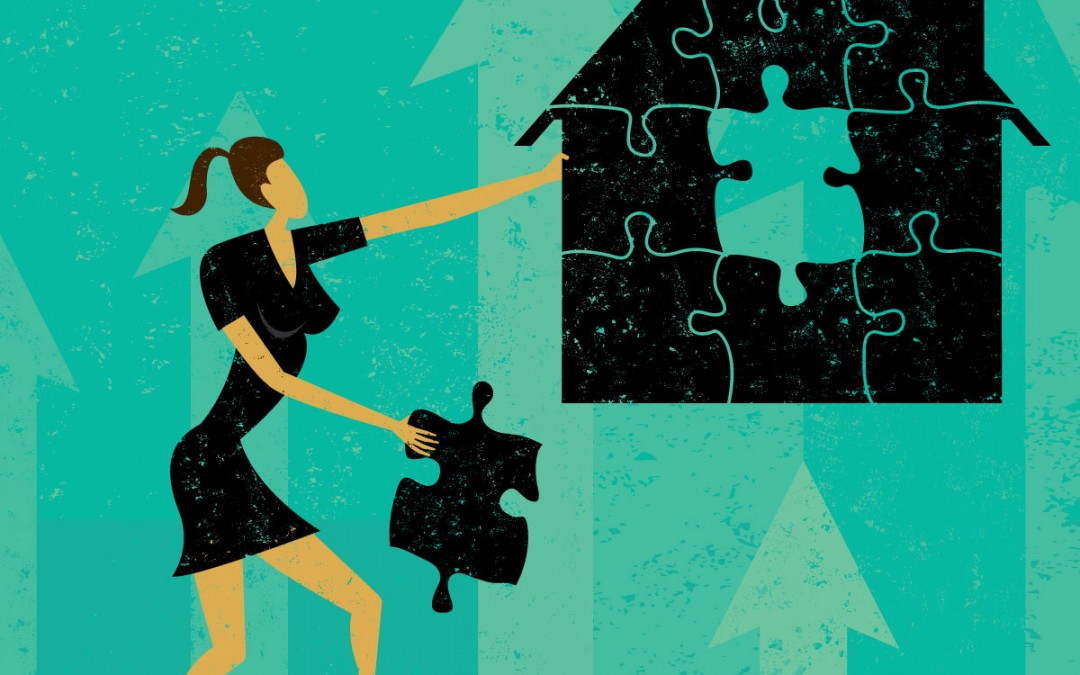
Here at New-Homes, we’ve been working with NatWest’s mortgage team to answer some of the most asked questions about getting a mortgage. From finding out what a “base-rate” is, to understanding the types of mortgage available to you, NatWest have answered the top 15 questions as put to them by New-Homes.
You can find out more about NatWest mortgages here.
1. I’ve saved up a deposit to buy a home but don’t know if I’ve got enough. How much do you recommend me to save? What are my options if I’ve only got a small deposit?
The first thing to do is work out what you could realistically spend on your first home. You’ll need at least 5-10% of this to put down as a deposit. You’ll also need to make sure you have enough savings to cover other costs like Stamp Duty (or LBTT in Scotland), solicitor or conveyancer fees, property valuation and surveys.
Remember, the bigger your deposit, the smaller your mortgage loan will be and the less interest you’ll pay in the long term. A larger deposit could help you get a better mortgage deal.
If you only have a small deposit consider whether you could you borrow some money from your parents? Or could you move back home to save money on rent? If that’s not ideal, could you buy with a friend or family member? There are also Government-backed schemes such as Help to Buy, specially designed to help first-time buyers. Work out the right option for you.
2. How much can I afford? What should I do to work this out?
Before you start looking at properties, it’s a good idea to talk to a mortgage lender or take a look at a mortgage borrowing tool to get an idea of how much you may be able to borrow. You’ll also need to work out how much your monthly mortgage repayments may be.
Remember, the larger your deposit, the more likely it is that you’ll pay a lower rate of interest or maybe less fees.
3. I know how much I need to save, and I know how much I can afford, what do I need to do before approaching lenders?
Check your credit file – make sure all your bank accounts and credit cards are showing and have the correct address. You can get your credit file from credit reference agencies like Noddle, Experian and Equifax.
Get your paperwork ready – lenders will look at your income and expenses when you apply for a mortgage. To prove your income you’ll need to show pay slips and bank statements, or, if you’re self-employed, tax returns and business accounts prepared by an accountant. You’ll also need proof of ID, your address etc.
Think about your future plans- are you thinking of starting a family sometime soon? Would you still be able to afford your mortgage payments if your income changed? Think about how any future changes in income or interest rates could affect your ability to pay your mortgage.
4. What’s a creditrating? How important is it? And how do I improve mine?
Your credit rating is used to help lenders decide whether to lend you money, how much to let you borrow and, in some cases, how much interest to charge you.
If your credit score is poor or you have no history of borrowing for lenders to see, then there are immediate steps you can take to improve your credit score such as getting on the Electoral role and cancelling unused credit cards. You could also stop applying for credit until you’ve sorted out any problems on your credit file and improved your credit score.
5. What’s the difference between repayment and interest-only mortgages? How do I work out what’s best for me?
In a Repayment mortgage, your repayments are calculated so you’ll have repaid all the debt and the interest over the term you agree (e.g. 25 years). It means your monthly payments both cover the interest and chip away at the actual debt, so the mortgage is completely repaid at the end of the term.
In an Interest Only mortgage, you just pay the interest during the term. Your monthly payment doesn’t chip away at your actual debt – it just covers the cost of borrowing the money. You have to pay back the amount you borrowed in one lump sum at the end of the mortgage term. So if you get an interest-only mortgage, you must have a separate plan to pay off your debt.
6. What is an interest rate?
The interest rate is the percentage rate charged on the loan. For example, an annual interest rate of 5% means £5 is paid in interest for every £100 saved or borrowed.
7. What’s the difference between fixed-rate and variable mortgages? How do I work out what’s best for me?
If you want the security of paying the same amount every month, then a fixed rate mortgage may be a good choice for you. Your interest rate is fixed for an agreed period of time, usually two or five years. Repayments remain the same during this time, regardless of other interest rate rises or falls.
With a Tracker mortgage the interest rate is linked to the Bank Base Rate for a certain period of time, usually two, three or five years. If the base rate falls, so will your mortgage payments. If the Bank Base Rate goes up, your monthly mortgage payment will rise too. If you have flexibility and can afford to cover monthly repayments should the rate rise within the term, a Tracker mortgage may be right for you.
8. What’s a “base-rate”? Why are people worried about it going up? What would this mean for my mortgage?
The base rate of interest is set by a group called theMonetary Policy Committee. They meet up once a month to decide what the Bank of England base rate of interest rate should be. Since March 2009, the rate has been held at the historic low of 0.5% (accurate as of July 2015). It’s the rate of interest the Bank of England charges other banks to borrow from them.
The reason people worry about the base rate is that lenders use it to work out the rate of interest they charge to their customers. So a rise in the base rate is likely to mean that mortgage interest rates go up too.
9. I’ve seen fixed-rate offers for 2, 3, 5 and even 10 years. What should I consider when deciding which is right for me? What are the benefits of a shorter fix compared to a longer one?
The choice between fixed rates should really be based on the borrower’s circumstances rather than trying to second-guess the market. Generally that involves balancing two things: cost and security.
Longer terms give certainty for longer, and generally tie you in for longer, but cost more. While shorter deals are normally cheaper, but of course only in the short term.
So the questions to answer are, am I prepared to be tied in, and what price to put on that greater certainty?’ Careful consideration should be given to future plans and possible life changing events when fixing for a long period.
10. I’ve been offered a mortgage with and without a fee. What’s the difference and how do I work out what’s best for me?
Some mortgage deals may seem attractive but the fees can quickly add up. When comparing mortgage offers, add up all the charges over the length of the deal as well as your monthly repayments.
11. How long does a mortgage offer last for? What happens if mine expires?
A mortgage offer is normally valid for 3-6 months. If it expires, you will need to reapply.
12. What happens if I’m not able to make payments on my mortgage due to unforeseen circumstances? Would I lose my home?
If you are unable to make the payments on your mortgage you should contact your lender as soon as possible so that they can work with you to agree a plan. Losing your home will only happen as a last resort should the lender be unable to reach an agreement with you.
13. Can I overpay on my monthly mortgage payments? Can I repay early?
Lenders typically allow borrowers to overpay up to 10 per cent of their mortgage each year penalty-free. Some more flexible deals allow borrowers to pay much more. Overpaying a small amount each month could save you in interest and help you clear your debt ahead of schedule.
If you are on a fixed or tracker rate deal, you may have to pay an early redemption penalty if you pay off your mortgage completely, or go beyond permitted overpayments.
14. What happens if I want to move house? Can I transfer my mortgage or will I get penalised?
Many mortgages are ‘portable’ which means you may be able to transfer your current mortgage product to a new property.
However, even if your mortgage is portable in theory, it may not be possible to do so if, for example, you need to borrow more or if your circumstances have changed and you no longer qualify.
Before you commit to selling your property and buying a new one, you should do your checks to see if you are likely to qualify to port your existing deal or get a new mortgage.
15. Are there any differences in getting a mortgage for a new build home compared to an existing one?
Maximum Loan to Value (LTV’s) are oftenlower for new build homes than on older properties. This has forced developers to offer tempting incentives to get the sale such as providing some of the deposit or paying stamp duty. You must tell your lender about any discounts so it knows exactly how much you are paying for the property.

